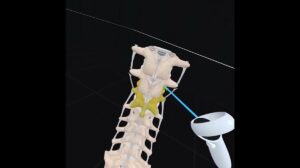NEW YORK (Reuters Health) – A finding of homozygosity for mutations that cause Gaucher disease in patients who report no symptoms of the disorder warrants further followup. Manifestations of the condition are likely to be uncovered in nearly all such cases, a team reports.
“All newly diagnosed patients should have a comprehensive evaluation even if they are asymptomatic. We find a significant number of N370S homozygotes with normal hematologic studies and with evidence of skeletal disease on imaging,” Dr. Manisha Balwani told Reuters Health via email
Gaucher disease is prevalent in Ashkenazi Jews, and most often results from the N370S mutation in acid-beta glucosidase. It’s believed that up to two-thirds of people homozygous for N370S never experience symptoms of the disorder, Dr. Balwani and colleagues at Mount Sinai School of Medicine, New York, explain in the September 13 issue of the Archives of Internal Medicine.
To investigate clinical manifestations in N307S homozygotes who report no symptoms, the authors assessed their experience in screening 8069 individuals of Ashkenazi descent who requested prenatal genetic testing.
Nine previously undiagnosed homozygotes were identified through screening, and the team evaluated six of them along with 31 others identified in similar New York programs.
Of the 37 subjects, 24 reported no Gaucher-disease-related symptoms while the other 13 reported symptoms such as fatigue and being easy bruised.
On further investigation, however, the researchers found that 11% were anemic, 43% were thrombocytopenic, 96% had splenomegaly, all had marrow infiltrates of the spine or femur, and various bone defects were detected in 14% to 43%. Osteopenia or osteoporosis was uncovered in 60%.
“Our findings indicate that homozygosity for the common N370S mutation does not result in a benign or low penetrant disease,” the authors conclude, “and emphasizes the importance of early recognition and appropriate treatment to minimize or prevent future irreversible disease complications.”
Dr. Balwani added, “Physicians often classify N370S homozygotes as having mild or benign disease and may not follow them closely. In our experience, these patients are not always mild but have a variable phenotype and may require treatment.”
Arch Intern Med 2010;170:1463-1469.




